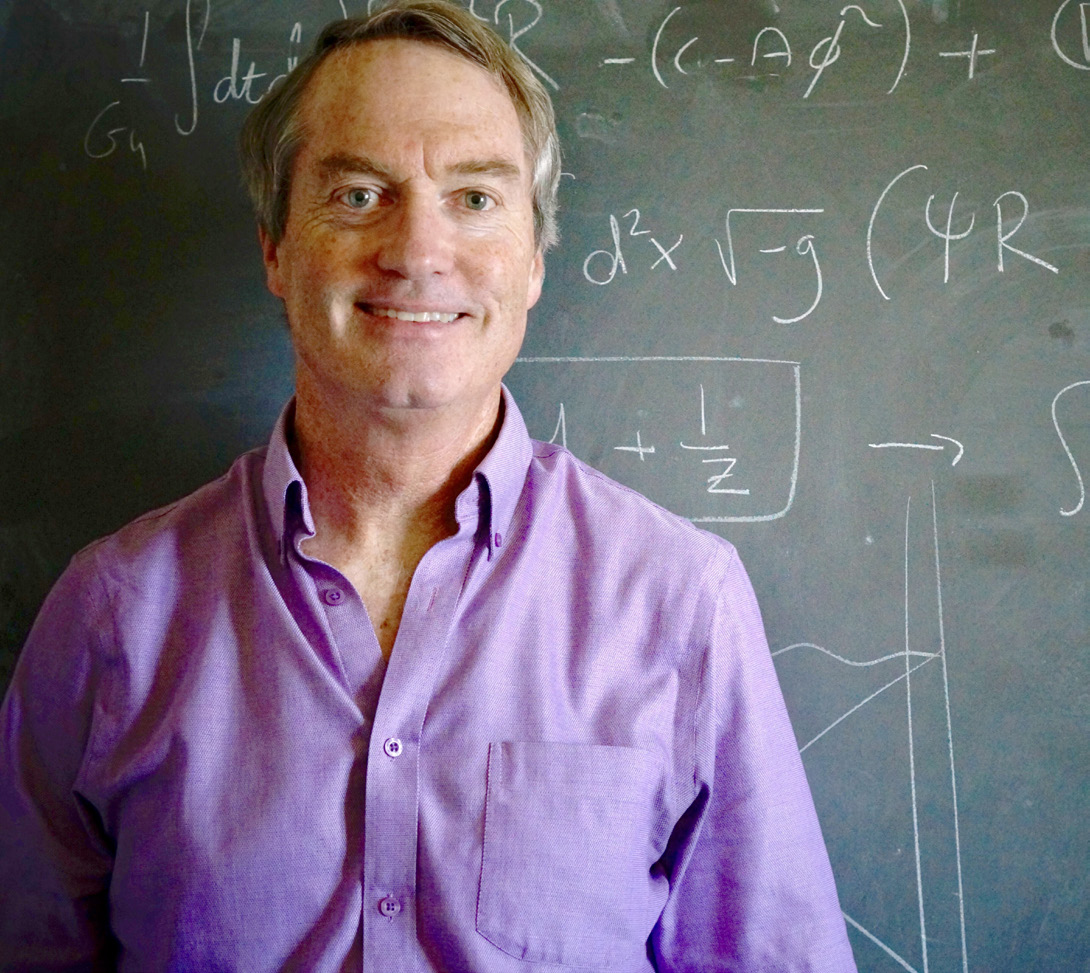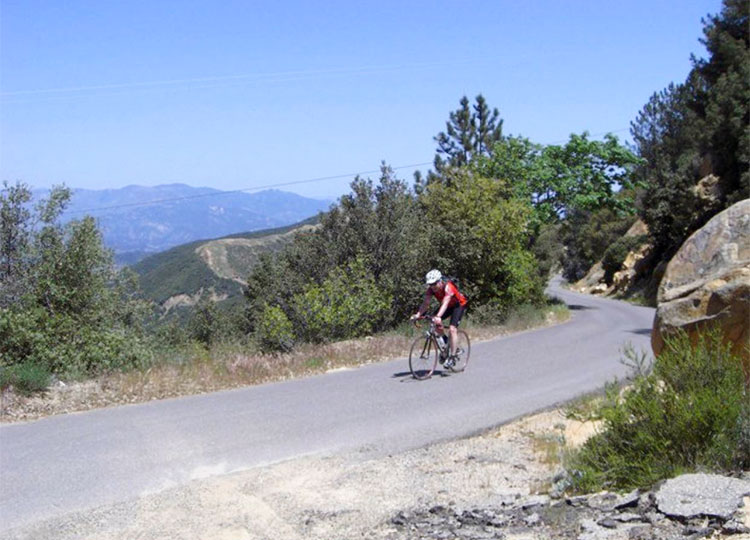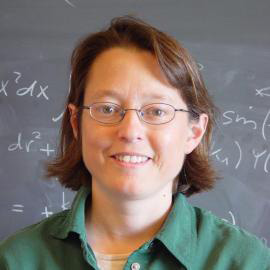 Joe Polchinski at the KITP at UC Santa Barbara in 2014.
Joe Polchinski at the KITP at UC Santa Barbara in 2014.
Photo by Sonia Fernandez.
In physics, we sometimes make progress through conflict. Thought experiments uncover apparent contradictions that sharpen our theories. In addition, there’s often a trade-off between the precision of a calculation and its relevance to an ultimate goal.
The physicist Joe Polchinski was the rare exception who often managed to avoid such trade-offs. He developed concrete methods relevant to major problems. He also had a knack for uncovering fruitful conflicts, marshaling his own extensive, almost contradictory talents.
Joe was radically conservative, following well-supported physical principles to their logical conclusions, however extreme or surprising. Less circumspect on a road bike, he would tear down a descent. He was irreverent yet dignified, pragmatic but positive. Although competitive, he was a consummate good sport who took joy in the successes of others. The community is reeling from the loss of such a brilliant physicist and extraordinary human being. Joe died earlier this year from brain cancer at age 63.
Polchinski made an enormous impact, not just on theoretical physics but on other physicists. I recall delightfully succinct discussions where we put our finger on the essential crux of a problem within a matter of minutes. Perhaps this efficiency helps to explain how he was able to transcend the limited circles in which most scientists operate. Working for the last 25 years at the KITP, he interacted meaningfully with much of the theoretical physics community worldwide, conscious of the fact that important insights come from all quarters.
 Polchinski cycling in the mountains near Santa Barbara.
Polchinski cycling in the mountains near Santa Barbara.
Courtesy of Eva Silverstein.
Since Polchinski’s death, there has been an outpouring of grief and appreciation online. “The memories that come back most vividly involve Joe’s sense of fun, his utter lack of pretension and the way he had of treating everyone equally,” wrote Markus Luty, a physicist at the University of California, Davis. “Joe did not lower his standards for anyone, but he made those around him feel significant with his intense way of listening and engaging with them.”
An avid cyclist, Joe enjoyed epic rides with friends, exploring the mountainous landscapes in California, Colorado and beyond. These high- spirited, intense adventures also led to more physics, at least when it was possible to hold a conversation. On one occasion, a few of us were drafting behind Joe, and he inadvertently led us off road, later explaining that he’d been thinking about entropy. In Santa Barbara, he took varied groups of physicists up Old San Marcos Road, delighting in the progress of new riders. He pushed himself hard and applauded his friends enthusiastically whether ahead or behind him on the road.
 Eva Silverstein, Professor of physics at Stanford University
Eva Silverstein, Professor of physics at Stanford University
I worry about the loss of his perspective, which has been indispensable at times as the field tries to converge on the right answers or, in lieu of answers, the appropriate level of uncertainty. As the community mourns his loss and celebrates his major contributions, we have our work — and fun — cut out for us on the questions he left behind.
- Eva Silverstein, Professor of Physics at Stanford University
KITP Newsletter, Spring 2018
This is an excerpt from an article published in Quanta Magazine. You can read this story in its entirety here: https://www.quantamagazine.org/
